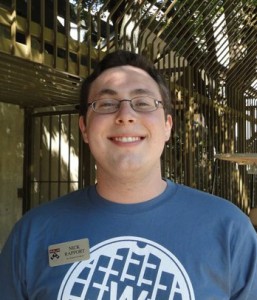by Sharon Fleshman
I work with many students who seek to either enter or support the helping professions. Often the same skills that they seek to empower others with need to be applied to their own career planning and development. As you develop these three R’s during your job search, remember that they’ll also come in handy to help you excel once you land the job.
Reflection. Many of us live in a fast-paced, media-saturated culture, in which information, ideas, and images are coming at us from all directions. This isn’t necessarily bad in of itself, but can distract us from the thoughtful, intentional reflection necessary to confirm our interests, affirm our strengths and address our weaknesses. Fortunately, reflection can be integrated into a field placement, internship or just about any extracurricular experience. Student teachers can reflect on why a particular lesson was or was not successful. Student nurses can make observations about how their supervisors attend to patients. Interns can think about what attracted them to one internship site more than another. Taking the time to reflect can be quite beneficial to the job search, particularly for interviewing, since you often need to offer concrete examples that demonstrate that you are interested in and qualified for the job.
Resourcefulness. As you seek to move toward your career goals, there are resources available to help. The key is to foster awareness of these resources and to utilize them effectively. Those of you in the helping professions seek to cultivate resourcefulness toward wellness and development in your students, patients, and clients; don’t forget to do the same for yourself. The Career Services website is a great place to start identifying resources that will be most useful to you. Our website is full of information and may seem a bit overwhelming at first glance, so set aside some time to learn to navigate it. Your network is also an important resource, so make sure that you build it by way of informational interviewing, joining professional associations, and being a resource for others.
Resilience. Ask any student making a comeback from a failing grade or a patient recovering from illness. Resilience makes the difference. The ability to bounce back in the face of roadblocks is always necessary, especially during a challenging economy. If you are frustrated at the lack of job offers or caught off guard by a layoff, it is critical not to internalize your disappointment or a paralysis of sorts may set in. Instead, look to your support system for encouragement and advice as you regroup. Adjust your goals and tweak your plans as necessary, but don’t overwhelm yourself by focusing on worst case scenarios. Take it one step at a time. Start each day with a fresh resolve to persist. Submit another application. Schedule another informational interview. Use the tools of reflection and resourcefulness to move forward.








